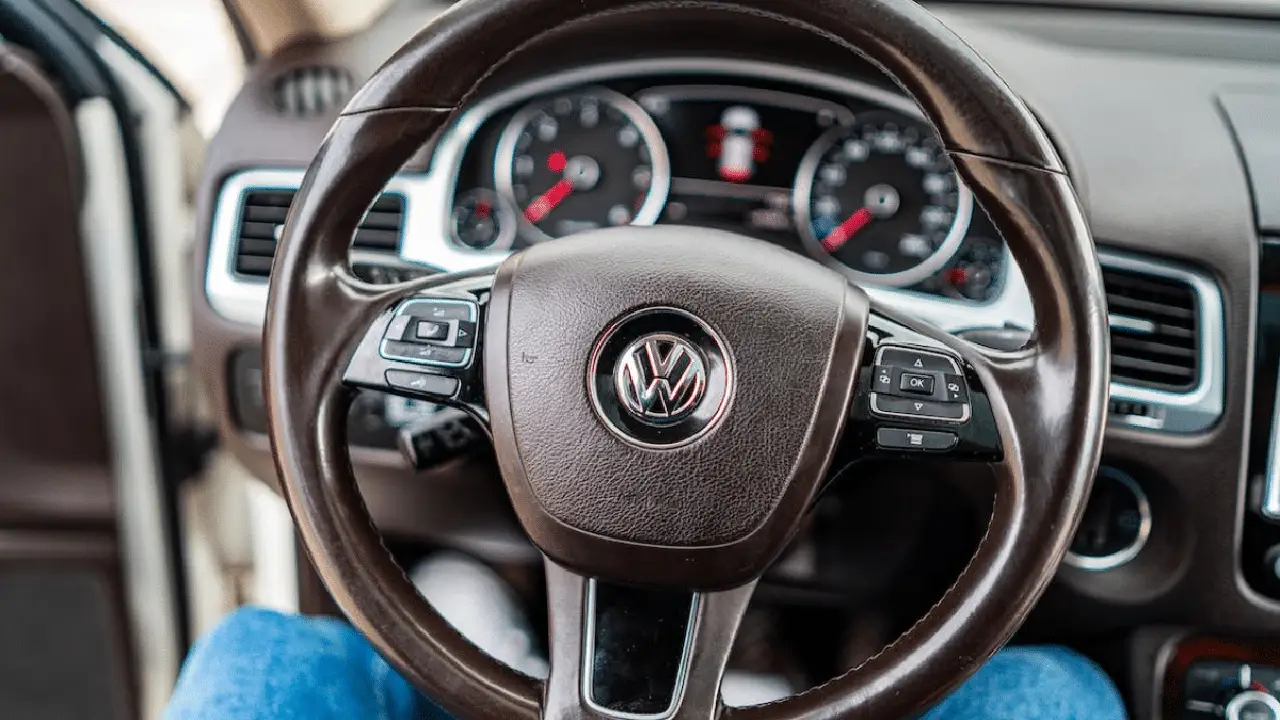Car Leasing Scams: How to Protect Yourself

Understanding Common Car Leasing Scams A Comprehensive Guide
Car leasing can be a great way to drive a new car without the long-term commitment of buying. However, like any financial transaction, it's not without its risks. Scammers are always looking for ways to exploit unsuspecting consumers. This guide will help you understand the common car leasing scams and, more importantly, how to protect yourself from becoming a victim. We'll cover everything from recognizing red flags in leasing agreements to practical tips for avoiding scams, and even recommend some trustworthy resources.
Spotting the Red Flags: Common Car Leasing Scam Indicators
Knowing what to look for is half the battle. Here are some red flags that should raise your suspicion when considering a car lease:
- Unusually Low Monthly Payments: If a deal seems too good to be true, it probably is. Scammers often lure victims with incredibly low monthly payments that are later revealed to be based on unrealistic conditions or hidden fees. Always compare quotes from multiple dealerships and be wary of significantly lower offers.
- Hidden Fees and Charges: Read the fine print carefully. Scammers often bury extra fees and charges in the lease agreement, such as excessive wear-and-tear charges, early termination penalties, or inflated acquisition fees. Ask for a complete breakdown of all costs before signing anything.
- Bait-and-Switch Tactics: This involves advertising a car at a low price to get you in the door, then switching you to a more expensive vehicle or lease agreement. They might claim the advertised car is no longer available or try to pressure you into a different deal.
- Odometer Tampering: Be cautious of used cars being leased with suspiciously low mileage. Odometer tampering is illegal but still occurs. Have the car inspected by an independent mechanic before signing the lease.
- Pressure Tactics: High-pressure sales tactics are a common warning sign. Scammers often try to rush you into signing a lease agreement before you have time to carefully review it or seek independent advice. Don't be afraid to walk away if you feel pressured.
- Unclear or Incomplete Lease Agreements: A legitimate lease agreement should be clear, concise, and easy to understand. If the agreement is filled with jargon or contains missing information, it's a red flag. Have a lawyer review the agreement if you have any doubts.
Protecting Yourself: Practical Tips to Avoid Car Leasing Scams
Prevention is key. Here are some practical steps you can take to protect yourself from car leasing scams:
- Do Your Research: Before visiting any dealerships, research the car models you're interested in and compare lease offers from different sources. Use online resources like Edmunds, Kelley Blue Book, and Consumer Reports to get an idea of fair market values and typical lease terms.
- Shop Around: Don't settle for the first offer you receive. Get quotes from multiple dealerships and compare them carefully. Negotiate the terms of the lease, including the monthly payment, down payment, and residual value.
- Read the Fine Print: This is crucial. Carefully review the entire lease agreement before signing anything. Pay attention to the details, including the mileage allowance, excess mileage charges, wear-and-tear charges, and early termination penalties. Don't hesitate to ask questions if anything is unclear.
- Get Everything in Writing: Make sure all promises and agreements are put in writing in the lease agreement. Verbal agreements are difficult to enforce.
- Have the Car Inspected: If you're leasing a used car, have it inspected by an independent mechanic before signing the lease. This can help you identify any hidden problems or odometer tampering.
- Consider GAP Insurance: GAP (Guaranteed Auto Protection) insurance covers the difference between the car's value and the amount you owe on the lease if the car is stolen or totaled. This can protect you from significant financial loss.
- Be Wary of Co-Signers: Avoid co-signing a lease for someone you don't know well. If the primary lessee defaults on the lease, you'll be responsible for the payments.
- Trust Your Gut: If something feels wrong, trust your instincts. Don't be afraid to walk away from a deal if you're uncomfortable with it.
Specific Scam Scenarios and How to Handle Them Car Leasing Fraud Prevention
Let's delve into some specific scam scenarios and how to handle them:
- The "Yo-Yo" Scam: You sign a lease agreement and drive off with the car, only to be contacted a few days later by the dealer claiming the financing fell through. They demand you return the car or sign a new agreement with less favorable terms. How to Handle It: Don't return the car. Insist on seeing proof that the financing was denied. If they can't provide proof, contact a lawyer or consumer protection agency.
- The "Bait-and-Switch" with Add-Ons: You're promised a low monthly payment, but when you arrive at the dealership, they add on unnecessary options and services that significantly increase the price. How to Handle It: Refuse to pay for anything you didn't agree to. Be prepared to walk away if they won't honor the original agreement.
- The "Hidden Wear-and-Tear" Scam: At the end of the lease, the dealer charges you exorbitant fees for "excessive wear and tear" that you don't believe is justified. How to Handle It: Take detailed photos and videos of the car before returning it. Get a pre-inspection from a third-party inspector. Dispute any unreasonable charges with the dealer and, if necessary, file a complaint with the Better Business Bureau or a consumer protection agency.
Recommended Products and Services for a Smoother Leasing Experience
Beyond avoiding scams, here are some products and services that can make your car leasing experience smoother:
- GAP Insurance (Guaranteed Auto Protection): As mentioned earlier, GAP insurance is essential. It covers the difference between what you owe on the lease and the car's actual cash value if it's stolen or totaled. Compare GAP insurance policies from different providers to find the best rate. Expect to pay around $200-$700 for a policy.
- Tire and Wheel Protection: This covers the cost of repairing or replacing damaged tires and wheels due to potholes, nails, or other road hazards. If you live in an area with poor road conditions, this can be a worthwhile investment. Policies typically cost between $300 and $600 for the lease term.
- Excess Wear and Tear Protection: This covers minor damages to the car, such as scratches, dents, and interior stains, that might otherwise result in charges at the end of the lease. Consider this if you're concerned about normal wear and tear. Expect to pay $500-$1000 for a policy.
- Pre-Lease Inspection Services: Before you lease a used car, consider having it inspected by a qualified mechanic. Services like those offered by Pep Boys or local independent mechanics can identify potential problems before you commit to the lease. Inspections generally cost between $100 and $200.
Comparing GAP Insurance Providers Choosing the Right Protection
Choosing the right GAP insurance is important. Here's a comparison of a few popular providers:
- Your Car Insurance Company: Many major car insurance companies, like Geico, State Farm, and Progressive, offer GAP insurance as an add-on to your existing policy. This is often the most convenient option. Prices vary depending on your location and driving history.
- The Dealership: The dealership will likely offer GAP insurance when you sign the lease. While convenient, their prices are often higher than those offered by insurance companies. Negotiate the price or shop around for a better deal.
- Third-Party GAP Insurance Providers: Several companies specialize in GAP insurance, such as Auto Loan GAP and Tresl. These providers may offer more competitive rates, but it's important to research their reputation and policy terms carefully.
Example: Let's say you lease a Toyota Camry and total it after a year. You owe $18,000 on the lease, but the car's actual cash value is only $15,000. Without GAP insurance, you'd be responsible for the $3,000 difference. With GAP insurance, the policy would cover that $3,000, saving you a significant amount of money.
Understanding Mileage Allowances and Avoiding Overage Fees Mileage Matters
Mileage is a critical component of any lease agreement. Exceeding your mileage allowance can result in hefty overage fees, typically ranging from $0.15 to $0.30 per mile. Here's how to estimate your mileage needs and avoid overage charges:
- Track Your Driving Habits: For a few weeks before leasing a car, track your daily and weekly mileage. This will give you a realistic estimate of your annual driving needs.
- Factor in Unexpected Trips: Account for occasional road trips, vacations, and other unexpected driving. It's better to overestimate your mileage needs than to underestimate them.
- Negotiate a Higher Mileage Allowance: If you know you'll be driving a lot, negotiate a higher mileage allowance when you sign the lease. This may increase your monthly payment slightly, but it's often cheaper than paying overage fees.
- Consider Purchasing Additional Miles Upfront: Some dealerships offer the option to purchase additional miles at a discounted rate before signing the lease. This can be a good option if you anticipate exceeding your initial allowance.
- Monitor Your Mileage Regularly: Keep track of your mileage throughout the lease term. This will help you identify if you're on track to exceed your allowance and give you time to adjust your driving habits or purchase additional miles.
Specific Car Recommendations for Leasing Based on Usage Scenarios
Choosing the right car for leasing depends on your specific needs and usage scenarios. Here are a few recommendations:
- For City Commuting: A compact car like the Honda Civic ($250-$350/month lease) or the Toyota Corolla ($230-$330/month lease) is a great choice. They're fuel-efficient, easy to park, and offer a comfortable ride for daily commutes.
- For Family Hauling: A minivan like the Chrysler Pacifica ($350-$500/month lease) or the Honda Odyssey ($380-$550/month lease) provides ample space for passengers and cargo. They also offer a range of safety features and entertainment options for families.
- For Weekend Adventures: An SUV like the Jeep Grand Cherokee ($400-$600/month lease) or the Toyota 4Runner ($450-$650/month lease) is ideal for outdoor adventures. They offer four-wheel drive capability, ample cargo space, and a comfortable ride for long trips.
- For Luxury and Style: A luxury sedan like the BMW 3 Series ($450-$700/month lease) or the Mercedes-Benz C-Class ($480-$750/month lease) offers a premium driving experience with advanced technology, luxurious interiors, and stylish designs.
- For Fuel Efficiency: A hybrid or electric vehicle like the Toyota Prius ($280-$400/month lease) or the Nissan Leaf ($300-$450/month lease) is a great choice for saving money on fuel costs and reducing your environmental impact.
Comparing Lease Offers: A Practical Example Car Lease Comparison
Let's compare lease offers for two popular cars, the Honda Civic and the Toyota Corolla:
Honda Civic LX (2024 Model):
- Monthly Payment: $279
- Down Payment: $2,999
- Lease Term: 36 months
- Mileage Allowance: 12,000 miles per year
- Residual Value: 55%
- Money Factor: 0.0015
Toyota Corolla LE (2024 Model):
- Monthly Payment: $259
- Down Payment: $2,499
- Lease Term: 36 months
- Mileage Allowance: 12,000 miles per year
- Residual Value: 58%
- Money Factor: 0.0012
Analysis: While the Corolla has a slightly lower monthly payment and down payment, the Civic may be a better value overall due to its higher residual value. The money factor also plays a role, as a lower money factor means lower interest charges. It's important to consider all factors before making a decision.
Leveraging Online Resources for Car Leasing Research Stay Informed
The internet is a valuable resource for car leasing research. Here are some websites and tools that can help you make informed decisions:
- Edmunds: Offers detailed car reviews, pricing information, and lease calculators.
- Kelley Blue Book (KBB): Provides fair market values for cars and helps you estimate lease payments.
- Consumer Reports: Offers unbiased car reviews and reliability ratings.
- Leasehackr: A forum where users share lease deals and discuss leasing strategies.
- TrueCar: Provides price quotes from local dealerships.
Final Thoughts: Leasing with Confidence Knowledge is Power
Car leasing can be a smart financial decision if you do your research and protect yourself from scams. By understanding the common red flags, following the practical tips outlined in this guide, and utilizing online resources, you can lease a car with confidence and enjoy the benefits of driving a new vehicle without the long-term commitment of ownership. Always remember to read the fine print, shop around for the best deals, and trust your gut. Happy leasing!
:max_bytes(150000):strip_icc()/277019-baked-pork-chops-with-cream-of-mushroom-soup-DDMFS-beauty-4x3-BG-7505-5762b731cf30447d9cbbbbbf387beafa.jpg)






